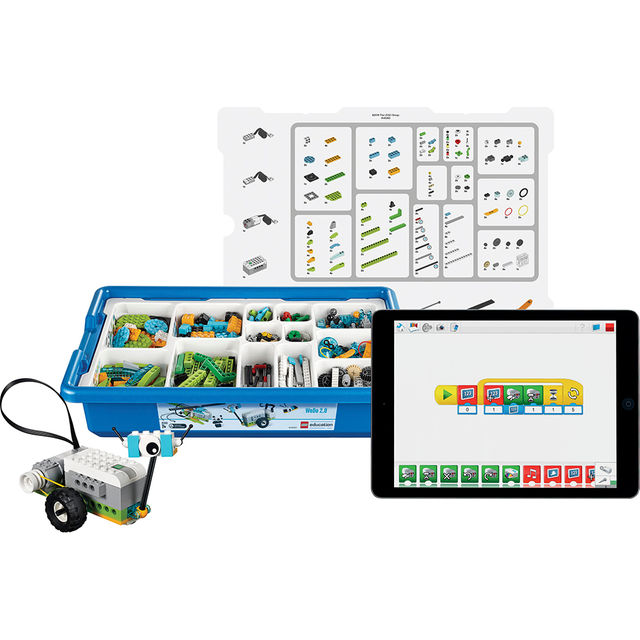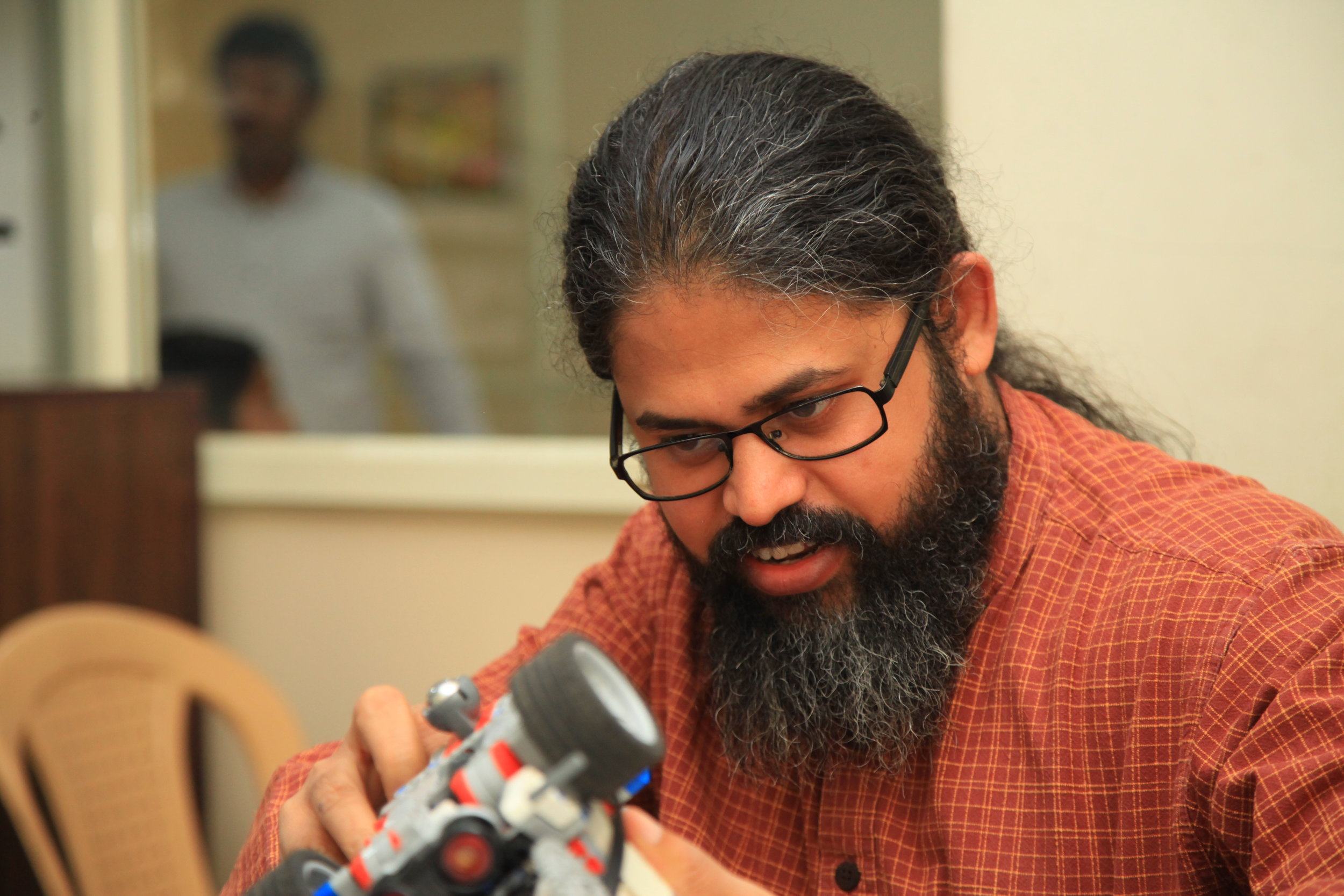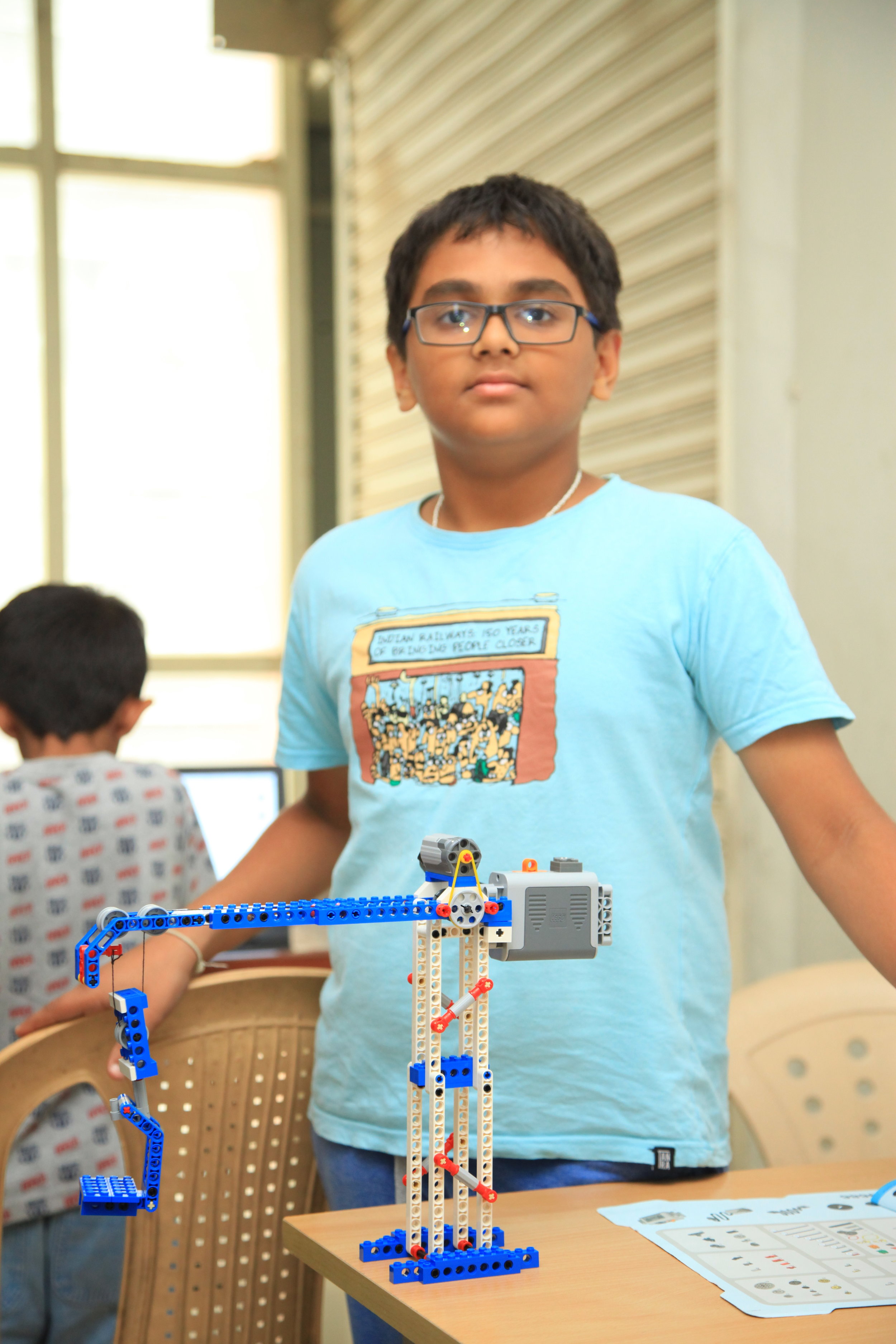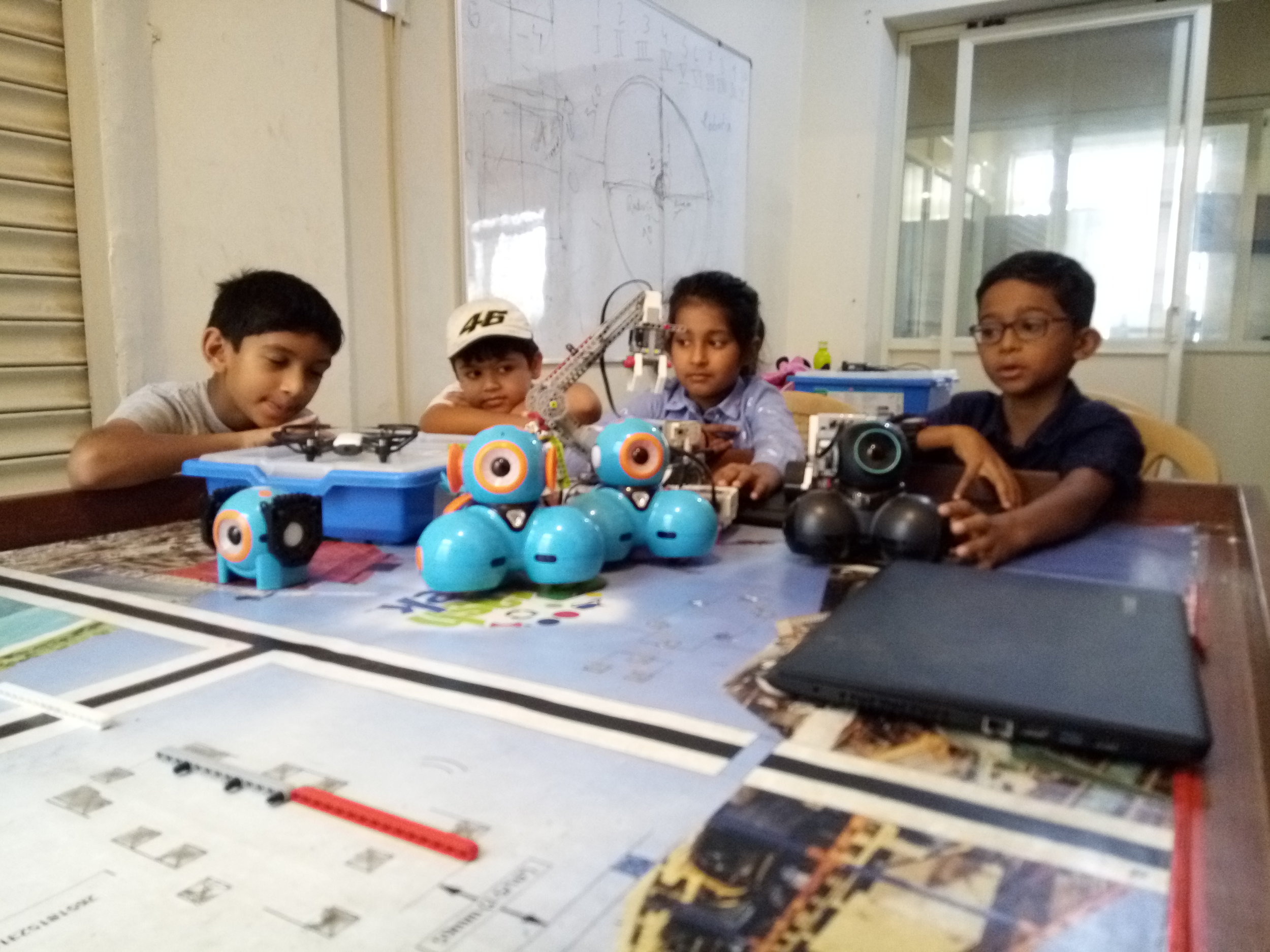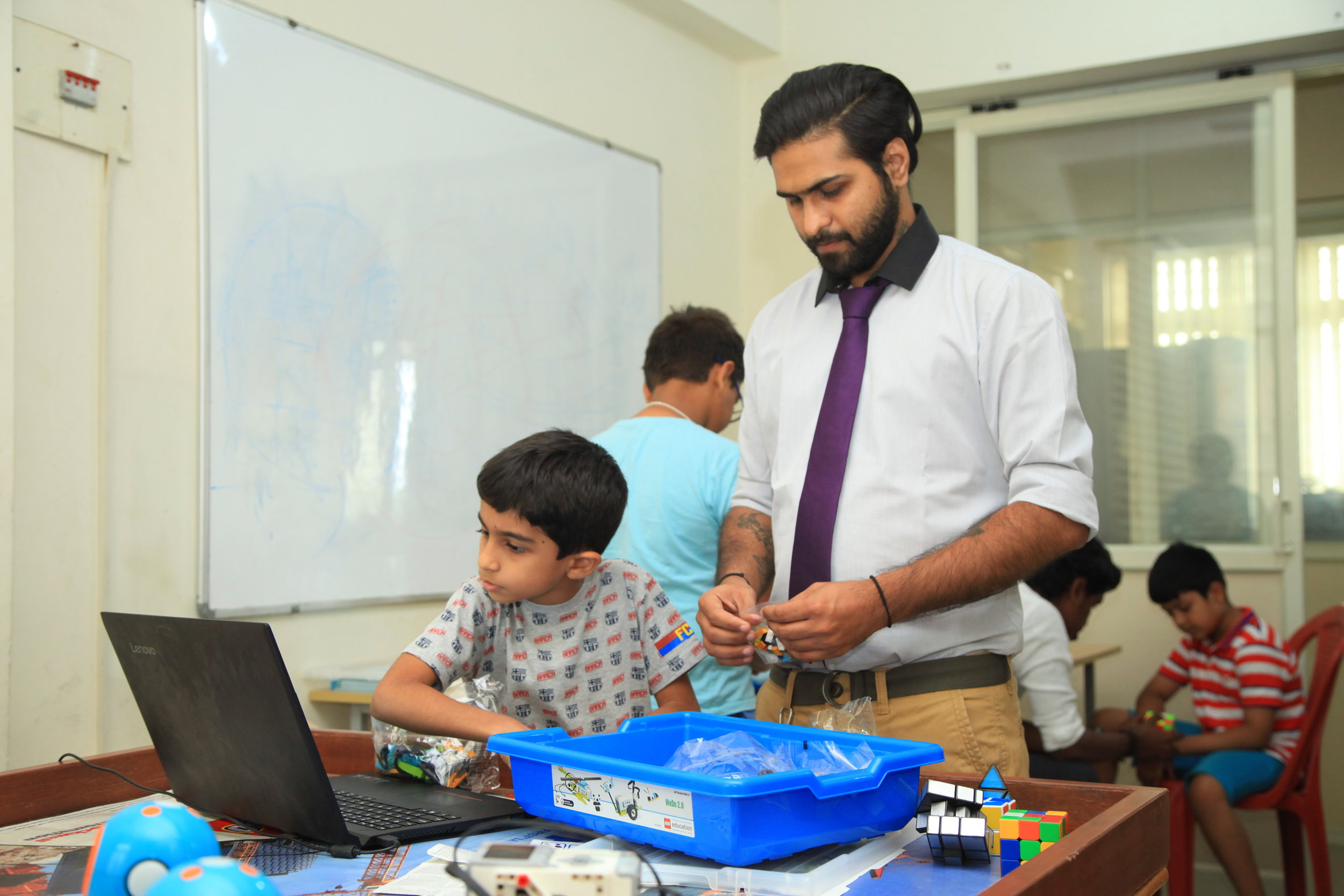
Robotics Classes For kids
ZugZwang in ROBOTICS
Robotics is a branch of technology that deals with the design, construction, operation and application of robots, as well as computer systems for their control, sensory feedback, and information processing. The design of a given robotic system will often incorporate principles of mechanical engineering, electronic engineering, and computer science particularly artificial intelligence
Beginner's Robotics Classes for Kids
Meet Dash
Dash is a real robot, charged and ready to play out of the box. Responding to voice, navigating objects, dancing, and singing, Dash is the robot you always dreamed of having. Use Wonder, Blockly, and other apps to create new behaviors for Dash — doing more with robotics than ever possible. No books or camps needed!
Built to Inspire
Give Dash new abilities with our ever-growing family of snap-on accessories
Turn Dash into a projectile firing a machine
Compose, loop and play tunes
Code comes to life on canvas
Get some serious work done
Your robot. Your rules.
A Friend Fit for You
Cue is an incredibly clever robot with a witty attitude that’s full of interactive surprises. Choose from four free unique avatars to customize Cue with a personality that’s right for you. The more you explore, the more you’ll discover what cue can do.
Robotics Amplified
The cue app takes robotics to the next level. Engage in a witty chat with Cue, control Cue’s movements, create reactive sensor behaviors, or code creative interactions using Block or JavaScript programming at the skill level that’s right for you.
Intermediate Robotics Classes for Kids:
Students design and observe the behavior of their models. They reflect and re-design the model functionality and present their findings. Students build the models together, each focusing on their part of the model - strengthening their 21st-century skills in collaboration and communication.
Advance Robotics Classes for Kids:
Students design and build programmable robots using high quality motors, sensors, gears, wheels, axles, and other technical components. By using hands-on robotics, students will gain a better understanding of how technology works in real world applications.
The solution enables students to understand and interpret two-dimensional drawings to create three-dimensional models; build, test troubleshoot and revise designs to improve robot performance; Gain practical, hands-on experience using mathematical concepts such as estimating and measuring distance, time and speed.
Program robots and other creations
Document and track progress using the documentation tool
Create and edit content
Access the Robot Educator tutorials
Log real-time data and calculate data sets
EV3 Sensor
Capable of detecting seven colors plus the absence of color. It can tell the difference between color or black-and-white or among blue, green, yellow, red, white, and brown.
Measures distances between one and 250 cm (one to 100 in.Accurate to +/- 1 cm (+/- 0.394 in).Front illumination is constant while emitting and blinks while listening.Returns True if other ultrasonic sound is recognized
Angle mode measures angles with an accuracy of +/- 3 degrees
Cross-axle hole on button
WeDo 2.0 strengthens students’ understanding of the eight science and engineering practices, including asking questions and solving problems, modeling, prototyping, investigating, analyzing and interpreting data, computational thinking, creating evidence based arguments, and obtaining, evaluating, and communicating information.
Develop your students’ competencies through hands-on projects covering key science topics such as physical-, life-, earth- and space sciences, engineering and technology. Improve problem solving, critical thinking, communication, collaboration and integrate the use of relevant digital tools to improve computational thinking skills.
LEGO Education WeDo
This set is based upon the latest science standards and was created to enhance students' curiosity and science skills. The set is delivered in a storage bin along with sorting trays, labels, a Smarthub, a Medium Motor, Motion Sensor, a Tilt Sensor, and enough building elements for two students
Drone
Feel the Fun We came up with Drone




















